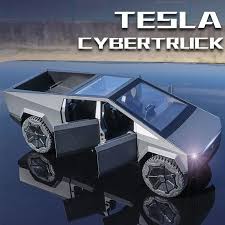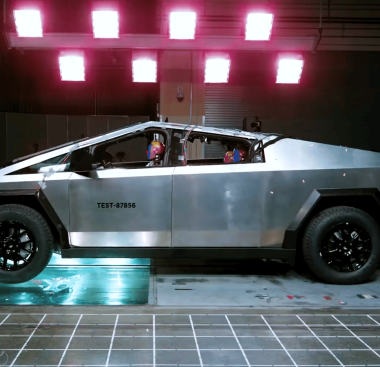Exploring the Design and Engineering of Tesla’s Electric Vehicles
Tesla's electric vehicles are known for their sleek designs, impressive performance, and cutting-edge technology.

Here are some key aspects of their design and engineering:
- Battery Technology: Tesla's electric vehicles are powered by high-capacity lithium-ion batteries, which are manufactured in-house at their Gigafactories. These batteries are designed to provide maximum range, durability, and safety. They also use a sophisticated thermal management system that regulates temperature and prevents overheating, which helps to extend the lifespan of the batteries.
- Motor Technology: Tesla's electric vehicles use a unique motor technology called the "Tesla AC Induction Motor". This motor uses a combination of high-powered magnets and copper windings to generate torque and power. The AC induction motor is highly efficient, reliable, and has a simple design, which allows for easier maintenance and repair.
- Autonomous Driving: Tesla's vehicles are equipped with advanced autonomous driving capabilities, including Autopilot and Full Self-Driving (FSD). These systems use a combination of cameras, sensors, and machine learning algorithms to provide semi-autonomous and fully autonomous driving features. The systems can detect and respond to traffic, pedestrians, and other obstacles in real-time, making driving safer and more efficient.
- Design: Tesla's vehicles are designed to be both functional and stylish. The sleek and aerodynamic design reduces drag and improves efficiency, while the minimalist interior design provides a futuristic and modern feel. The large touch-screen display on the dashboard provides access to a variety of features, including entertainment, climate control, and navigation.
- Manufacturing: Tesla's vehicles are manufactured using advanced manufacturing techniques, such as 3D printing and robotic assembly. This allows for greater precision and efficiency in the manufacturing process, resulting in higher quality vehicles and faster production times.
- Regenerative Braking: Tesla's electric vehicles use a regenerative braking system that captures energy normally lost during braking and converts it into electricity to recharge the batteries. This not only helps to extend the range of the vehicle, but also reduces wear on the brake pads and improves overall efficiency.
- Supercharging Network: Tesla has developed a network of Supercharger stations that allow drivers to recharge their vehicles quickly and conveniently. These stations use high-powered chargers that can add up to 170 miles of range in just 30 minutes. The Supercharging network is designed to provide seamless long-distance travel for Tesla owners, and continues to expand with new locations being added regularly.
- Safety Features: Tesla's vehicles are equipped with a range of advanced safety features, including collision avoidance systems, automatic emergency braking, and adaptive cruise control. These features work together to help prevent accidents and keep passengers safe in the event of a collision.
- Over-the-Air Updates: Tesla's vehicles are designed to receive over-the-air software updates, which can add new features, improve performance, and fix bugs without the need for a trip to the service center. This allows Tesla to continually improve the driving experience for their customers, and keep their vehicles up-to-date with the latest technology.
- Sustainable Materials: Tesla is committed to sustainability, and has made efforts to use environmentally-friendly materials in the design and manufacturing of their vehicles. For example, the Model 3 uses a vegan leather interior, and the company has made efforts to reduce waste and recycle materials throughout their manufacturing process.
Overall, Tesla's electric vehicles represent a significant departure from traditional gasoline-powered cars, and showcase the potential for a more sustainable and efficient future for the automotive industry.
Popular Post









